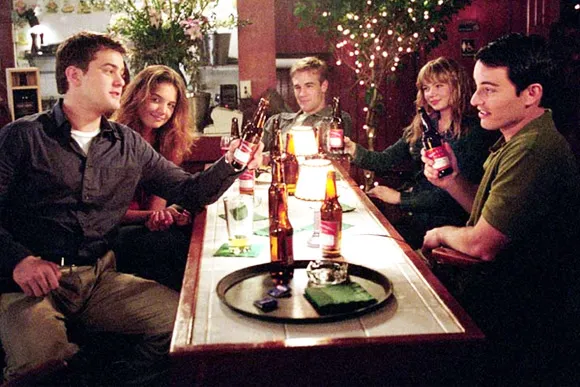In 2014, the internet mourned the loss of a cultural cornerstone: Television Without Pity (TWoP), a website that redefined how we talk about TV. For nearly two decades, TWoP was the go-to hub for fans craving witty, snarky recaps and vibrant community discussions about their favorite shows. Its closure left a void in the hearts of a generation raised on its biting commentary and meticulous episode breakdowns. But why did TWoP’s end hit so hard, and what does it tell us about the evolution of online fandom and television criticism? Let’s dive into the story of TWoP, its impact, and the legacy it left behind.
The Rise of Television Without Pity
A Snarky Beacon in the Early Internet
In the late 1990s, when dial-up modems screeched and websites were clunky, TWoP began as a humble blog called Dawson’s Wrap, focusing on the teen drama Dawson’s Creek. Founded by Sarah D. Bunting, Tara Ariano, and David Cole, it was a labor of love for fans frustrated by lazy writing and cliched characters. By 2002, it had evolved into Television Without Pity, with the motto “Spare the Snark, Spoil the Networks.” Its recaps, laced with sharp humor and incisive critique, covered shows like Buffy the Vampire Slayer, Gilmore Girls, and America’s Next Top Model, turning casual viewers into obsessive analysts.
Why TWoP Mattered
TWoP wasn’t just a website; it was a community where fans dissected plot holes, celebrated character arcs, and laughed at absurd TV tropes. Its forums buzzed with debates, and its recaps—sometimes thousands of words long—offered insights that made you rethink episodes you’d just watched. For a generation coming of age in the early 2000s, TWoP was a formative space, teaching us to demand better storytelling and to engage with media critically.
The Fall of an Internet Icon
The NBCUniversal Acquisition
In 2007, Bravo (a subsidiary of NBCUniversal) acquired TWoP for an undisclosed sum, seeing its two million monthly visitors as a goldmine for ad revenue. Initially, the site retained its editorial independence, but cracks soon appeared. The founders left in 2008, and a redesign that same year alienated users with its cluttered interface and corporate gloss. As one fan lamented on a blog, “It’s like they took a dive bar and turned it into a bank.” Traffic plummeted, and by 2013, the site was a shadow of its former self, plagued by technical issues like malware.
The Final Curtain
On March 27, 2014, NBCUniversal announced TWoP’s closure, effective April 4, with forums shutting down by May 31. The decision sparked outrage, especially when it seemed the archives—15 years of cultural commentary—might vanish. After fan outcry, NBCUniversal reversed course, keeping the archives online at sites like BrilliantButCancelled.com. Still, the loss of new content left fans reeling, wondering how they’d navigate their favorite shows without TWoP’s snarky lens.
The Cultural Impact of TWoP’s Demise
A Shift in TV Criticism
TWoP pioneered the recap format, blending humor with analysis in a way that felt like chatting with a clever friend. Its closure marked a turning point in how we consume TV commentary. As Andrea Mullaney noted in The Guardian, the rise of Twitter and instant, bite-sized reactions began to overshadow TWoP’s long-form recaps. Fans wanted snappy, real-time takes, not 5,000-word essays. Yet, TWoP’s influence lingers in sites like The A.V. Club and Vulture, which adopted its conversational style.
The Loss of Community
TWoP’s forums were a pre-social media haven where fans connected over shared obsessions. Whether debating Lost’s mysteries or mocking The Bachelor’s melodrama, these spaces fostered a sense of belonging. When the site closed, fans like me—who spent hours arguing over Veronica Mars plot twists—felt unmoored. Social media platforms like Twitter and Reddit filled the gap, but their fragmented, fast-paced nature lacks the depth of TWoP’s threaded discussions.
A Personal Reflection
I remember stumbling across TWoP as a teenager, sneaking onto my family’s clunky desktop to read Gilmore Girls recaps. The writers’ wit made me laugh out loud, but their critiques taught me to question lazy tropes—like why every teen drama needed a love triangle. TWoP felt like a secret club for people who loved TV but weren’t afraid to call out its flaws. Its closure felt like losing a friend who always had the best gossip.
How TWoP Shaped a Generation
Critical Thinking Through Snark
TWoP didn’t just recap episodes; it taught a generation to think critically about media. As Emily Nussbaum, The New Yorker’s TV critic, said, “TWoP was the place that opened my eyes to what TV criticism could be.” By poking fun at cliches (like the “evil twin” trope) while praising nuanced storytelling, TWoP empowered fans to hold shows accountable. This mindset influenced how we engage with media today, from calling out plot holes on X to demanding diversity in casting.
The Birth of Fan-Driven Criticism
Before TWoP, TV criticism was largely the domain of professional reviewers. TWoP democratized it, giving fans a platform to share their voices. Its recappers, often fans themselves, wrote with passion and humor, inspiring sites like Previously.TV (founded by TWoP’s creators) and Smart Bitches, Trashy Books. This shift paved the way for modern fan culture, where viewers livetweet episodes and create viral memes.
Comparison: TWoP vs. Modern Platforms
| Platform | Strengths | Weaknesses |
|---|---|---|
| Television Without Pity | In-depth recaps, strong community forums, witty commentary | Slow to adapt to social media, corporate redesign issues |
| Twitter/X | Real-time reactions, broad reach | Lacks depth, prone to echo chambers |
| Threaded discussions, niche communities | Can be overwhelming, less curated content | |
| Vulture | Professional recaps, polished writing | Less interactive, no forums |
Pros and Cons of TWoP’s Legacy
Pros:
- Established recapping as a legitimate form of criticism.
- Built a passionate community that predated social media.
- Influenced TV writers, with figures like Aaron Sorkin engaging with its forums.
- Archives remain a treasure trove for TV historians.
Cons:
- Struggled to evolve with the fast-paced internet.
- Corporate acquisition diluted its unique voice.
- Heavy moderation in forums alienated some users.
Where to Find TWoP’s Spirit Today
Navigating the Post-TWoP Landscape
For those seeking TWoP’s blend of snark and insight, several platforms carry its torch. Vulture offers polished recaps with a nod to TWoP’s humor, while The A.V. Club provides detailed analyses and comment sections for fan debates. For community-driven discussions, Reddit’s show-specific subreddits (like r/SuccessionHBO) offer a modern equivalent to TWoP’s forums. If you’re looking for archives, check BrilliantButCancelled.com for TWoP’s old recaps.
Best Tools for TV Fans
- Streaming Services: Platforms like Netflix and Hulu provide access to shows TWoP once recapped, perfect for catching up on classics like Buffy or The Sopranos.
- Social Media: Follow hashtags like #TVRecaps on X for real-time fan commentary.
- Podcasts: Shows like Pop Culture Happy Hour (NPR) offer TWoP-esque discussions with a modern twist.
- Reddit: Join subreddits for your favorite shows to dive into fan theories and episode breakdowns.
People Also Ask (PAA)
What was Television Without Pity?
Television Without Pity was a website launched in 1998 that provided detailed, snarky recaps of TV shows, starting with Dawson’s Creek. It grew into a cultural hub with forums for fan discussions and a unique voice that blended humor with sharp criticism.
Why did Television Without Pity shut down?
TWoP closed in April 2014 after NBCUniversal, which acquired it in 2007, decided it was no longer financially viable. A redesign, declining traffic, and the rise of social media platforms like Twitter contributed to its demise.
Where can I find Television Without Pity archives?
The archives are preserved at BrilliantButCancelled.com, thanks to fan outcry after NBCUniversal initially planned to take them offline.
How did TWoP influence TV criticism?
TWoP popularized the recap format, blending humor and analysis in a way that inspired modern outlets like Vulture and The A.V. Club. It also empowered fans to engage critically with media, shaping online fandom.
FAQ Section
Q: What made Television Without Pity unique?
A: TWoP stood out for its witty, in-depth recaps and vibrant forums that fostered a sense of community. Its snarky tone and critical lens made it a pioneer in TV criticism, appealing to fans who loved shows but weren’t afraid to call out their flaws.
Q: Are there modern equivalents to TWoP?
A: Sites like Vulture and The A.V. Club offer similar recaps, while Reddit and X provide platforms for fan discussions. However, few match TWoP’s blend of humor, depth, and community.
Q: Did TWoP influence TV shows directly?
A: While TWoP’s founders didn’t believe they directly changed shows like Dawson’s Creek, some creators, like Aaron Sorkin, engaged with its forums, and its critiques may have subtly influenced writing.
Q: Why did fans care so much about TWoP’s closure?
A: TWoP was a cultural touchstone for a generation, offering a space to connect over shared TV obsessions. Its closure felt like losing a community hub, and the potential loss of its archives sparked fears of erasing a piece of internet history.
Q: Can I still access TWoP’s forums?
A: The forums closed in May 2014, but some discussions are preserved in archives at BrilliantButCancelled.com. Reddit offers similar community spaces today.
The Legacy Lives On
TWoP’s demise forced a generation to confront a world without its snarky guidance, but its spirit endures. It taught us to laugh at TV’s absurdities, to demand better storytelling, and to find community in shared passions. As we scroll through X or binge on Netflix, we carry TWoP’s legacy in our critical eye and our love for a good recap. So, here’s to TWoP: the snark is dead, long live the snark.





